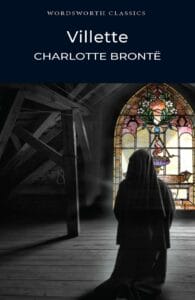
Book Summary
Villette is an exciting book written by Charlotte Brontë. It tells the story of a young girl named Lucy Snowe who goes on a big adventure in a place called Villette. This book is full of mystery, friendship, and even a little bit of romance!
Villette is a really interesting book that will keep you hooked from the beginning to the end. Lucy Snowe is a brave and smart girl who faces many challenges in her life. She moves to Villette to start a new life and goes to a school where she meets new friends and learns many things. The story is full of surprises and you never know what will happen next. It’s like going on a thrilling journey with Lucy!
Villette is a book that teaches us about the importance of friendship and being brave. Lucy Snowe is a strong character who never gives up, even when things get tough. She shows us that we can overcome any obstacle if we believe in ourselves. The book also explores themes of love and finding your place in the world. It’s a story that will make you think and feel many emotions.
Charlotte Brontë, the author of Villette, was a famous English writer. She lived in the 19th century and wrote many other well-known books like Jane Eyre. Charlotte Brontë was known for her strong female characters and her ability to create captivating stories. Her books are still loved by readers all around the world today.
“Villette” is a novel written by Charlotte Bronte, published in 1853. It is a semi-autobiographical work that explores the themes of identity, love, and independence through the eyes of its protagonist, Lucy Snowe. The novel is set in the fictional town of Villette, which is based on the real city of Brussels, where Bronte herself lived for a period of time. The novel is known for its complex narrative structure, its exploration of the female psyche, and its vivid depiction of life in a foreign country.
“Villette” is a deeply introspective novel that delves into the inner life of its protagonist, Lucy Snowe. Lucy is a young woman who, after suffering a series of personal tragedies, moves to the town of Villette to work as a teacher in a girls’ boarding school. The novel follows Lucy’s life in Villette, her struggles with loneliness and alienation, and her complex relationships with the other characters.
One of the most striking aspects of “Villette” is its narrative style. The novel is narrated by Lucy herself, and her narrative is characterized by a deep sense of introspection and self-analysis. Lucy’s narrative voice is often unreliable, as she frequently withholds information from the reader and presents events from her own subjective perspective. This narrative style adds a layer of complexity to the novel and invites the reader to question the nature of truth and reality.
The novel also explores the theme of love in a nuanced and complex way. Lucy’s relationships with the other characters, particularly with the charismatic Dr. John and the stern Professor Paul Emanuel, are fraught with tension and ambiguity. These relationships serve as a vehicle for Bronte to explore the complexities of love and desire, and the ways in which these emotions can both empower and constrain women.
Despite its complexity, “Villette” is also a deeply engaging novel. Bronte’s vivid descriptions of the town of Villette and its inhabitants bring the novel’s setting to life, and her exploration of Lucy’s inner life is both insightful and moving. The novel’s plot, while slow-paced, is filled with moments of tension and drama that keep the reader engaged.
“Villette” is a novel that is rich in themes and symbols. One of the central themes of the novel is the struggle for independence. Lucy is a character who is constantly striving for independence, both in her personal life and in her professional life. However, she is also constrained by the societal norms and expectations of her time, which often conflict with her desire for independence.
The novel also explores the theme of identity. Lucy is a character who is constantly questioning her own identity and her place in the world. She often feels alienated and out of place in Villette, and she struggles to reconcile her own desires and ambitions with the expectations of those around her.
The theme of love is also central to the novel. Lucy’s relationships with Dr. John and Professor Emanuel are complex and fraught with tension. These relationships serve as a vehicle for Bronte to explore the complexities of love and desire, and the ways in which these emotions can both empower and constrain women.
The novel is also rich in symbolism. The town of Villette itself is a symbol of alienation and isolation, reflecting Lucy’s own feelings of loneliness and displacement. The novel’s recurring motifs of darkness and light, dreams and reality, and silence and speech all serve to underscore its central themes and add depth to its narrative.
Charlotte Bronte was an English novelist and poet, the eldest of the three Bronte sisters who survived into adulthood and whose novels have become classics of English literature. She first published her works (including her best known novel, Jane Eyre) under the pen name Currer Bell.
Bronte’s novels are noted for their profound exploration of women’s consciousness and sexuality, their critique of societal norms and expectations, and their innovative narrative techniques. Despite the fact that her works were often controversial and received mixed reviews during her lifetime, Bronte is now considered one of the greatest novelists in the English language.
In conclusion, “Villette” is a complex and engaging novel that offers a profound exploration of themes such as identity, love, and independence. Its complex narrative structure, its vivid depiction of life in a foreign country, and its insightful exploration of the female psyche make it a must-read for any lover of literature.
Don Quixote by Miguel de Cervantes
Miguel de Cervantes
Read Now →